Eco-Writing offers new experiences for students
September 25, 2017
Eco-Writers braved monster mosquitoes, blood-sucking leeches, and poison ivy to get a tiny piece of written wilderness.
Eco-Writing, a summer English class offered to sophomores, juniors and seniors this year, had its first trip last summer. It is a blended online course centered around a 10-day canoe trip through Lake of the Woods, located in Minnesota’s most northern point, the chimney. Before the trip, the class read Canoeing with the Cree by Eric Savereid and met three days during the summer to read and process poems and short stories by notable eco-writers. The next time the group met, they were on a bus for 12 hours on their way to Laketrails Base Camp in Oak Island, Minnesota.
I really liked when we would all go back to the campfire and eat desserts and talk. I really got to know people better.
— Sarah Pucel
The final destination for the camping trip was Chick Lake, deep in Lake of the Woods. To get there, the group of eight students, two teachers, and two guides made the 25-mile canoe voyage north, across the border into Canada, followed by a difficult portage to the next lake, all while carrying supplies, belongings, tents, and canoes on their shoulders.
In adherence to the rules of the base camp, no one brought bug spray. ”It was incredibly hard, scary, and remote. It was like bushwhacking on the sides of… drop offs with canoes over our heads and heavy packs and mud up to our knees and mosquitoes…coming at us,” Kristin Gilbertson, one of the Eco-Writing teachers, said.
Despite what many people think, Lake of the Woods is unlike the Boundary Waters in many aspects. “I had been in the boundary waters before and everything was clearly marked. [In lake of the woods] all of the portages were very hard. It was just like bushwhacking,” senior Sarah Pucel said.
According to Gilbertson, no one had been to Chick Lake in 10 years, and it showed. “When we got to the campsite, it was full of poison ivy,” Gilbertson said.
Thankfully, no one had any severe reaction; however, when they got out of the water after they went swimming to wash off all of the sweat from the portage, they were covered in leeches. As if that wasn’t enough, it rained for the next couple of days, and those who didn’t bring specialty drying garments had to put their wet clothes back on each morning.
Despite the rough terrain and natural hazards, students and teachers alike were very positive about the experience. “I really liked when we would all go back to the campfire and eat desserts and talk. I really got to know people better,” Pucel said.
While camping at various spots throughout Lake of the Woods, students wrote in journals about how the nature around them made them feel. They ate stir fry, spaghetti, and waffles, even when camping, and took day trips to see interesting rock formations, swans, and pelicans. “It was just lakes and trees and blue sky and… nothing else…There [were] no people anywhere or houses. Just our canoes gliding across the water,” Gilbertson said.
Based on positive feedback, the class will be offered next year with an added choice book. “We just really feel strongly that being immersed in nature is good for you spiritually,” Gilbertson said.
For prospective students, Pucel suggested bug repellent cream and the supplies lists will be updated to include necessities, such as wet-dry shirts.. “Be ready to get dirty…and to push your boundaries physically but don’t let that hold you back,” Gilbertson said.











































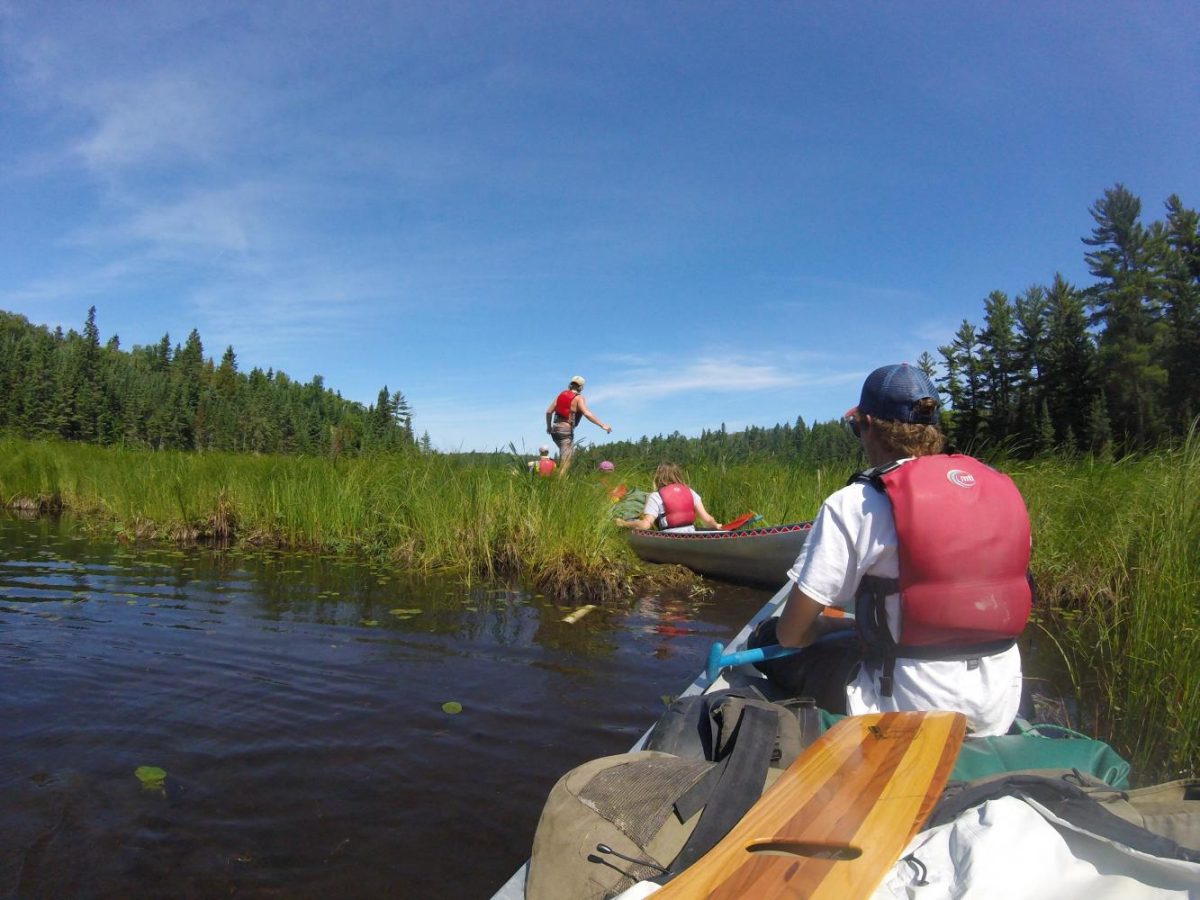

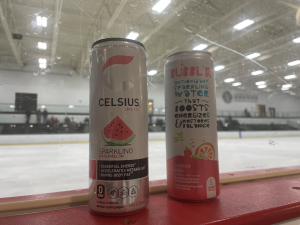

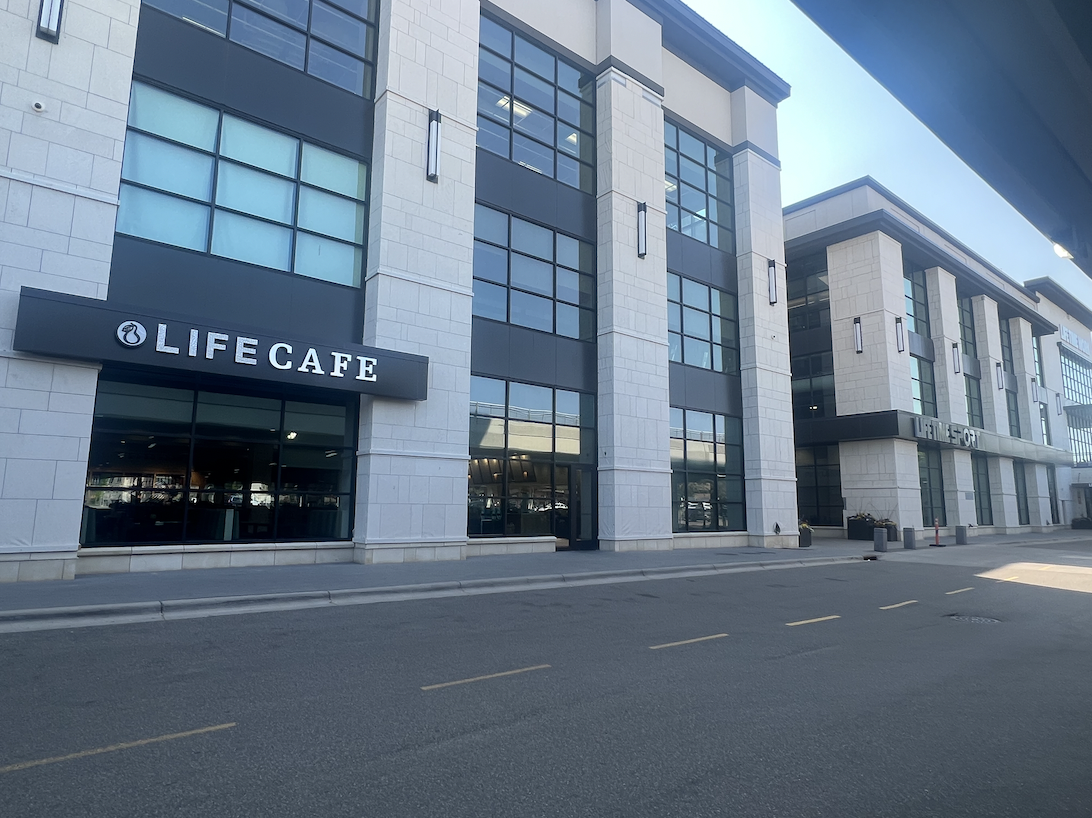

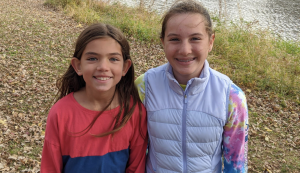


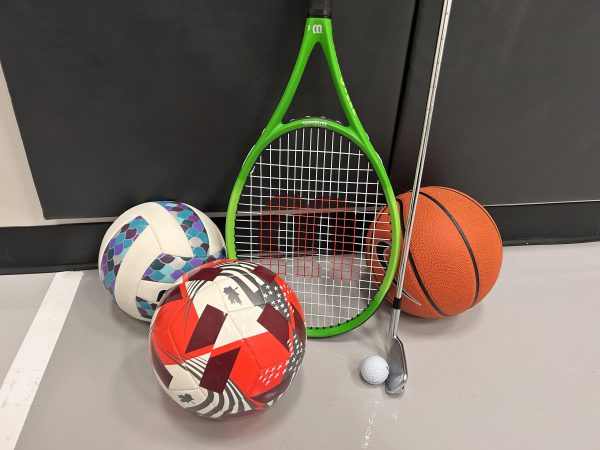

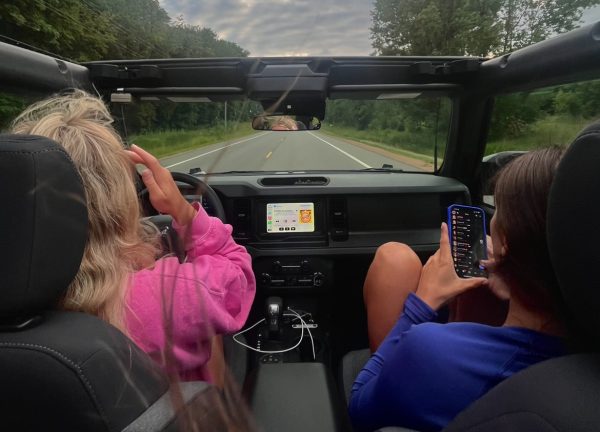



Bird Eye News • Oct 3, 2017 at 4:59 pm
Its cool that your school is offering new experiences, and that your journalism team is able to report them–great article! Feel free to visit our high school journalism website as well by searching “Bird Eye News” on Youtube or Google.